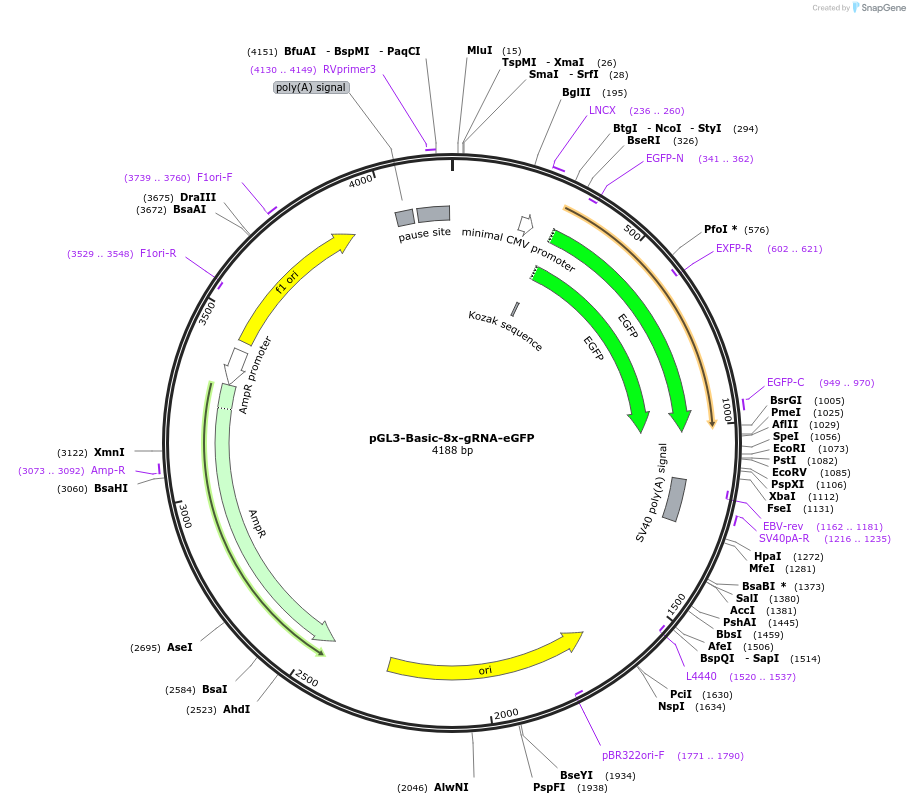-
PurposeeGFP reporter containing 8 copies of a gRNA binding site for light-inducible dCas9 activation
-
Depositing Lab
-
Sequence Information
Ordering
| Item | Catalog # | Description | Quantity | Price (USD) | |
|---|---|---|---|---|---|
| Plasmid | 60718 | Standard format: Plasmid sent in bacteria as agar stab | 1 | $85 | |
Backbone
-
Vector backbonepGL3-Basic
-
Backbone manufacturerPromega
- Backbone size w/o insert (bp) 4033
- Total vector size (bp) 4188
Growth in Bacteria
-
Bacterial Resistance(s)Ampicillin, 100 μg/mL
-
Growth Temperature37°C
-
Growth Strain(s)Stbl3
-
Copy numberHigh Copy
Gene/Insert
-
Gene/Insert name8 copies of gRNA binding site (5'-AAAGGTCGAGAAACTGCAAA-3')
-
Insert Size (bp)155
Resource Information
-
Articles Citing this Plasmid
Terms and Licenses
-
Academic/Nonprofit Terms
-
Industry Terms
- Not Available to Industry
Trademarks:
- Zeocin® is an InvivoGen trademark.
Depositor Comments
Discrepancies between the full and QC sequences have no functional consequences.
These plasmids were created by your colleagues. Please acknowledge the Principal Investigator, cite the article in which the plasmids were described, and include Addgene in the Materials and Methods of your future publications.
-
For your Materials & Methods section:
pGL3-Basic-8x-gRNA-eGFP was a gift from Charles Gersbach (Addgene plasmid # 60718 ; http://n2t.net/addgene:60718 ; RRID:Addgene_60718) -
For your References section:
A light-inducible CRISPR-Cas9 system for control of endogenous gene activation. Polstein LR, Gersbach CA. Nat Chem Biol. 2015 Feb 9. doi: 10.1038/nchembio.1753. 10.1038/nchembio.1753 PubMed 25664691





